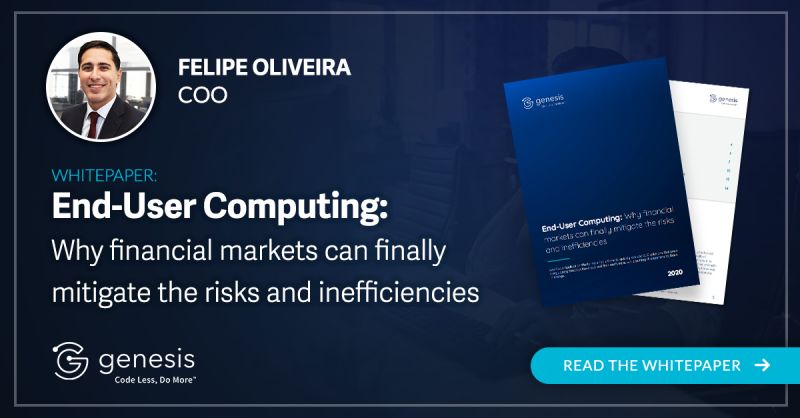Low Code Application Platforms enable firms to quickly replace EUC solutions that pose a regulatory threat or have outlived their usefulness while putting IT departments back in charge.
“By 2024, low-code application development will be responsible for more than 65% of application development activity.”
– Gartner
End-User Computing has been an invaluable tool for financial markets because it gave firms rapid and by its very nature ideally customized solutions to problems IT did not have the resource to resolve. Financial markets turned a blind eye to the potential risk of relying on solutions that operated outside normal regulatory processes because EUC for the most part proved highly effective – in the short-term anyway. While the financial crisis of 2008 dispelled the complacency, the constraints on IT did not go away. EUC risk could not be mitigated by the one approach that would remove the risk: replacing it with solutions that IT could monitor and control.
Financial markets are under intense pressure to curb costs – and IT soaks up a significant portion of the budget. Even successful EUC solutions eventually show their age and become an operational and cost liability, so replacing them would save a lot of money. But as we saw, IT has no room for manoeuvre to do that in a meaningful way.
However, the assumption that IT is powerless has been turned on its head by a new generation of Low Code Application Platforms that dramatically reduce the code needed – and therefore the time – to develop new solutions. This means it is finally feasible for IT to develop compliant and cost-effective solutions to replace EUC. This cannot happen overnight because EUC tools and models are pervasive in every sector of financial markets. Firms have to be strategic about which EUC solutions, or which market sectors, they need to “clean up” first. This will inevitably be a painstaking process, but the low-code approach ensures rapid progress so firms can quickly see the results of their hard work in removing risky and inefficient EUC from their technology landscapes.
Read the full whitepaper below where Genesis COO Felipe Oliveira explores how firms are already using Low-Code platforms to create enterprise applications that overcome immediate challenges and help to reshape business processes.



